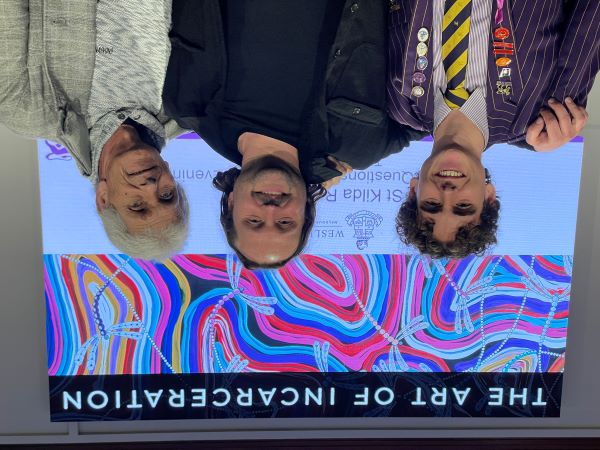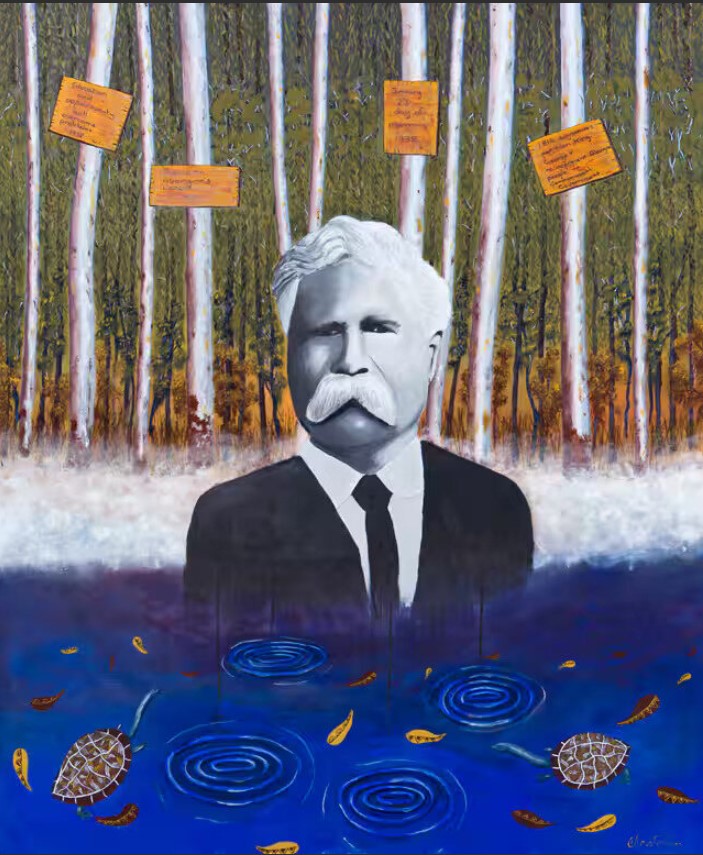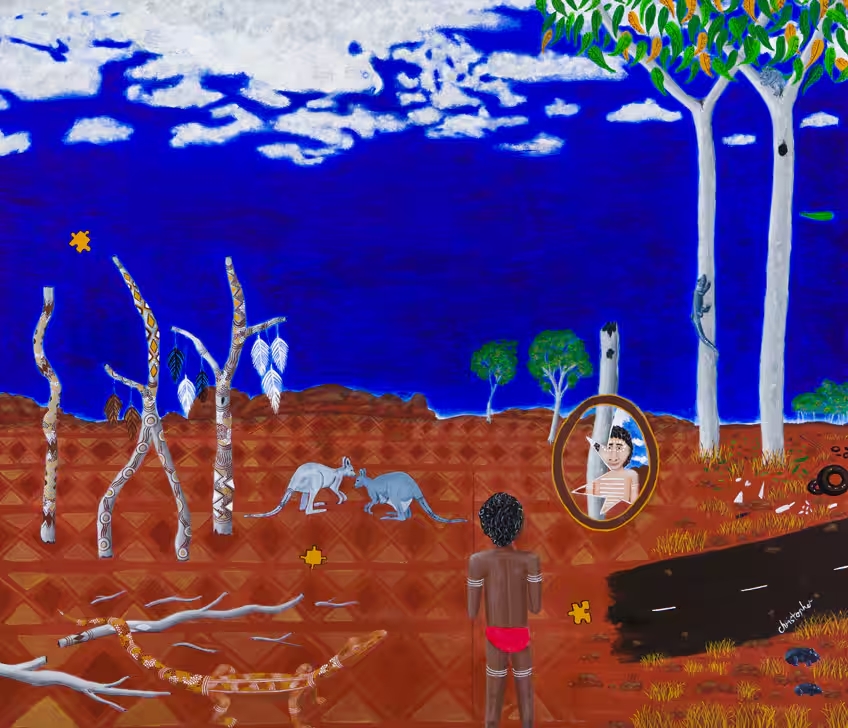‘We’re Blackfellas in jail. Nobody cares about us. This is a chance for our story to be told.’
Of all the absorbing Public Questions Society presentations organised by St Kilda Road PQS Prefect Oscar this year, the most moving has to have been the special screening for the Wesley community of Alex Siddons’ (OW2010) film ‘The Art of Incarceration’ in late July. Paul Munn reports.

Seen through the eyes of Indigenous prisoners at Victoria’s Fulham Correctional Centre in Gippsland, Alex’s award-winning documentary explores how art and culture can empower First Nations peoples to transcend their unjust cycles of imprisonment.
Strongly narrative – it’s almost as much ‘movie’ as it is doco - the film follows three main artists at different stages of their artistic and personal development as they rehabilitate towards a life outside of prison. Powerfully directed, it both analyses and humanises the over-representation of Indigenous Australians in the prison system, and movingly explores greatly misunderstood issues like cultural disconnection, intergenerational trauma, addiction and institutionalisation.
Making the film was an ‘enduring and exhausting’ process for Alex, a self-taught documentary filmmaker who co-wrote, directed and co-produced it over six years. ‘I found the story through a painting I was gifted,’ he says. ‘It led me back to the art room in which it was created...’
That art room was in the Gippsland-based prison, and it was there he met the man who would become a central figure in the film: Christopher Austin, the Elder in the Indigenous unit. ‘His words stayed with me as the gate closed behind me,’ says Alex, ‘We’re Blackfellas in jail. Nobody cares about us. This is a chance for our story to be told.’ From this moment, the film’s long journey had begun.
The project provided some ‘big learnings’ for Alex: ‘Seeing so many First Nations people institutionalised and learning that many inmates become disempowered with life on the outside. Stuck between prison and nothingness. That was a very confronting realisation,’ he says. ‘But then, through this journey, seeing so many realise their potential and find purpose was incredibly inspiring.’

Torch lights the way
A deeply engaging Q&A was held after the PQS screening with Alex and Christopher, a Gunditjmara and Keeray-Woorroong man. Now an artist and Indigenous mentor, Christopher was first incarcerated at age 12 and spent most of the following 37 years in the prison system. The longest time he spent free during that period was just nine months.
Christopher is the cousin of both Archie Roach and Lionel Rose, and was a close friend of the late great Uncle Jack Charles, who narrates ‘The Art of Incarceration’. One of three key artists featured in the film, he credits his rehabilitation to the art-in-prisons program run by The Torch, a Melbourne charity that provides art, cultural and arts industry support to First Nations people currently in, or recently released from, Victorian prisons.
The program supports the development of self-esteem, confidence and resilience through cultural strengthening and artistic expression. As well as assisting artists in reconnecting with culture, The Torch helps them generate an income through art sales, with 100% of the artwork price going directly to the artist.
Participants confirm that being part of the program has helped them stay out of the justice system, with less than 20% of participants who stay connected to the program one-year post-release returning to prison, compared to the average Indigenous recidivism rate of 60%.

The power of art to transform lives
The impact of the art program on Christopher’s life has been far-reaching. Now on the outside, his work as an artist continues, but the ripples extend even further. He has been granted access to work as an Indigenous mentor and art teacher back inside the prison system, and also mentors those transitioning back into the community. He jokes about a family member’s comment that ‘you spent all those years in prison, now they’re paying you to go back in there!’
‘In the past I was a crook, you know, a jail bird, but now I’m an artist,’ he smiles. ‘My daughter is so proud of that. I never used to think of myself that way.’
The Art of Incarceration is streaming now on Netflix.
To purchase an artwork, support The Torch with a tax deductible donation or find out more, visit https://thetorch.org.au/